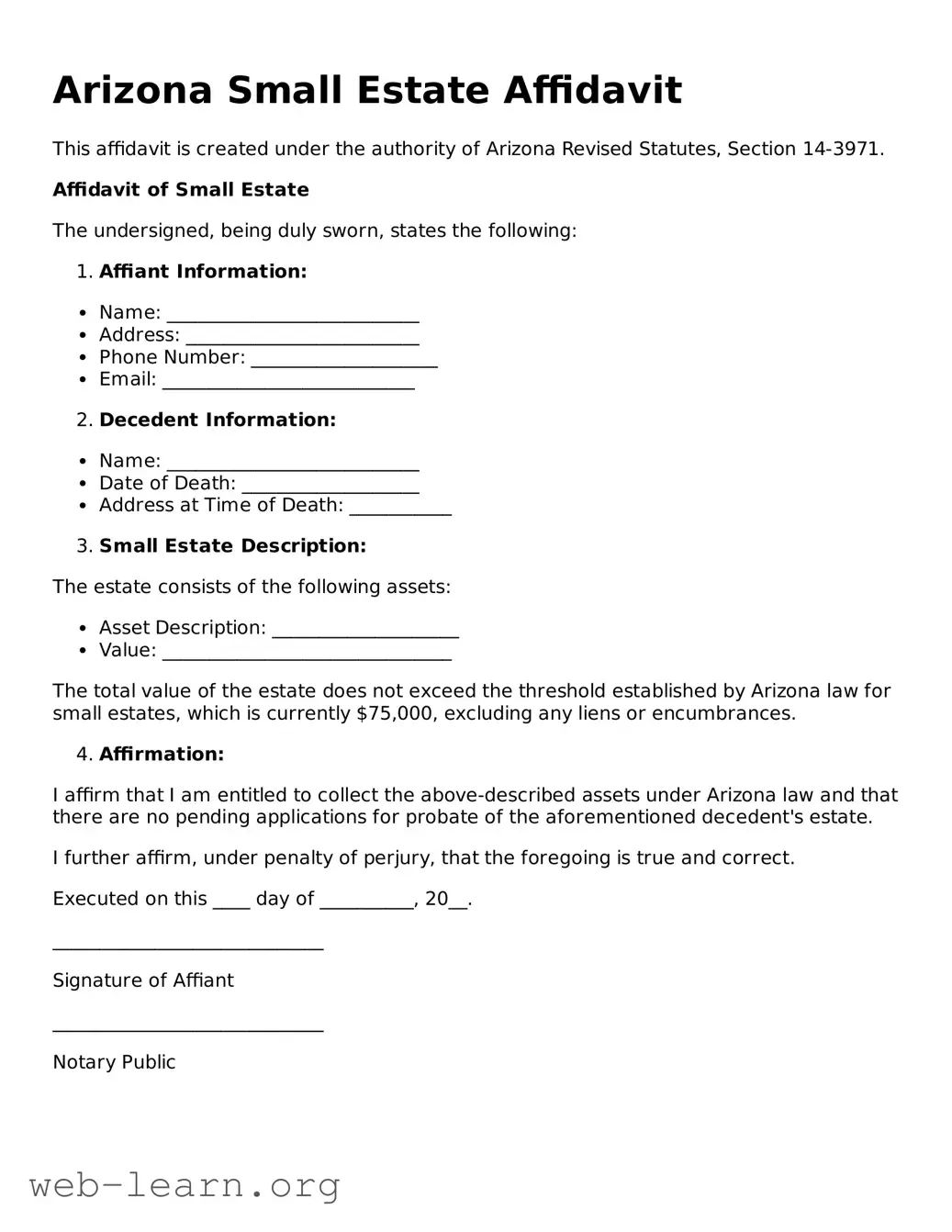Arizona Small Estate Affidavit
This affidavit is created under the authority of Arizona Revised Statutes, Section 14-3971.
Affidavit of Small Estate
The undersigned, being duly sworn, states the following:
- Affiant Information:
- Name: ___________________________
- Address: _________________________
- Phone Number: ____________________
- Email: ___________________________
- Decedent Information:
- Name: ___________________________
- Date of Death: ___________________
- Address at Time of Death: ___________
- Small Estate Description:
The estate consists of the following assets:
- Asset Description: ____________________
- Value: _______________________________
The total value of the estate does not exceed the threshold established by Arizona law for small estates, which is currently $75,000, excluding any liens or encumbrances.
- Affirmation:
I affirm that I am entitled to collect the above-described assets under Arizona law and that there are no pending applications for probate of the aforementioned decedent's estate.
I further affirm, under penalty of perjury, that the foregoing is true and correct.
Executed on this ____ day of __________, 20__.
_____________________________
Signature of Affiant
_____________________________
Notary Public
